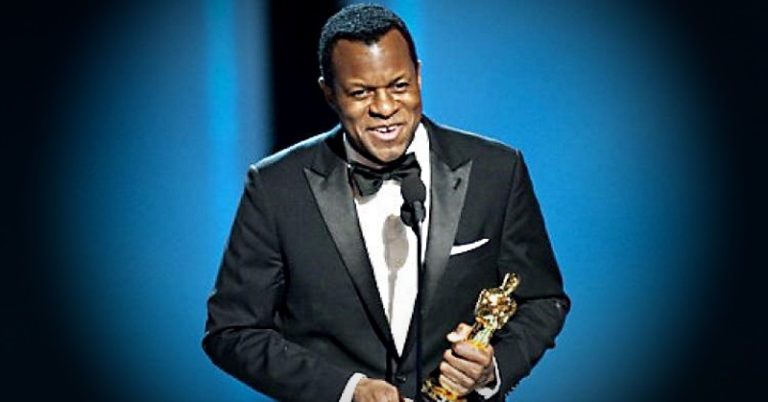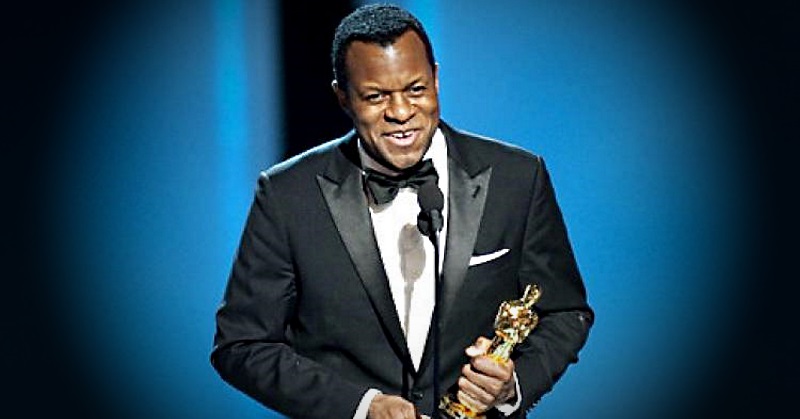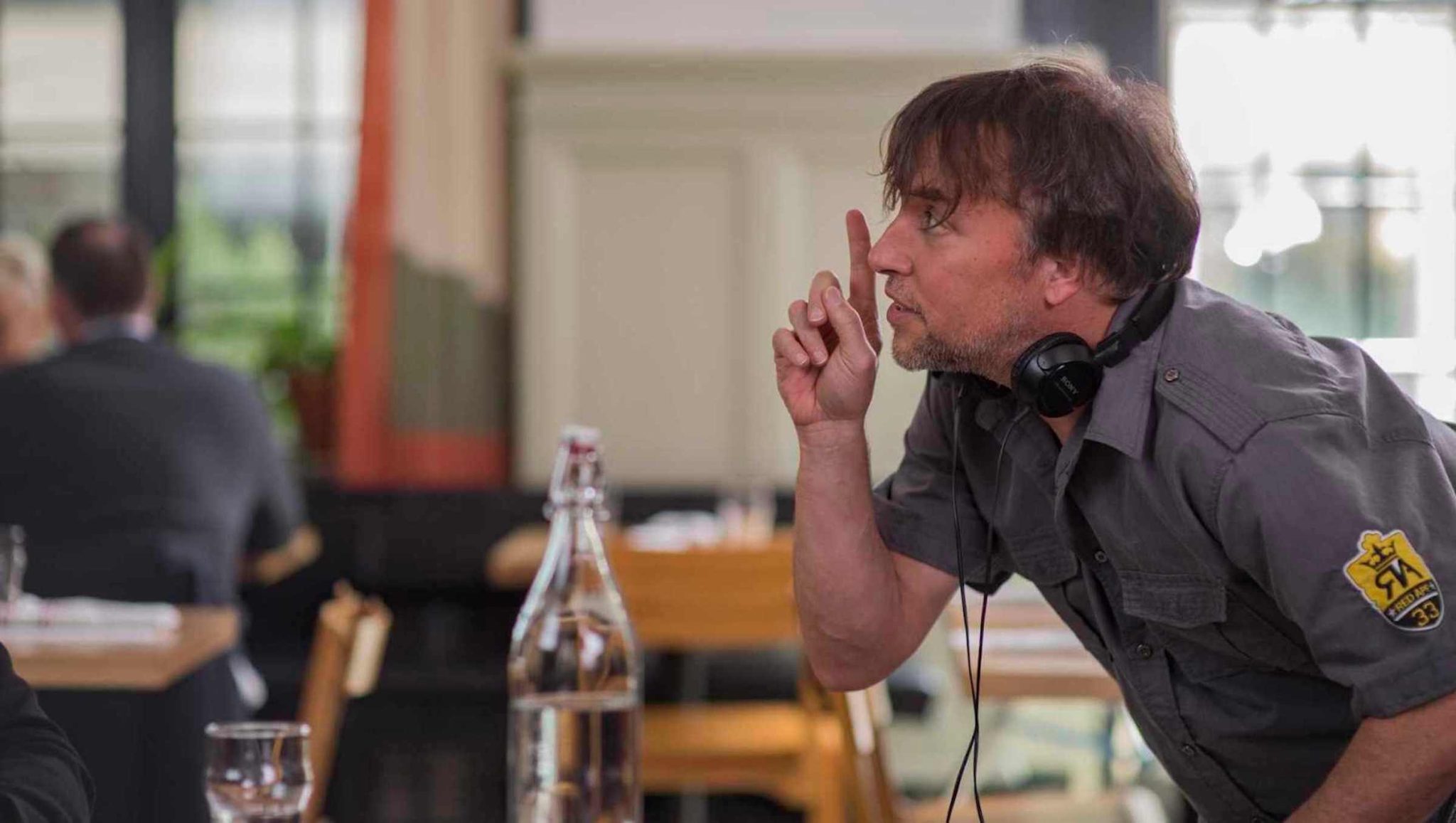
After watching every Best Adapted Screenplay and Original Screenplay Academy Award acceptance speech since the award show was televised (1953), we now feature ten of the best Oscar speeches from winning screenwriters — and what lessons and inspiration can be drawn from them.
The annual Academy Awards offer anyone working in the film industry an opportunity to be inspired while listening to the many Oscar speeches after winners are announced. Winning an Oscar is a pinnacle moment in the lives and careers of actors, directors, producers, editors, cinematographers, sound designers, composers, editors, visual effect supervisors, makeup & hair supervisors, costume designers — and yes, screenwriters as well.
It's an honor to be nominated by your peers and celebrated by your cinematic heroes.
While most of the Academy Awards audience tune out or skip over the Oscar speeches of anyone beyond actors, actresses, producers, and directors, those with dreams and aspirations of a career in any of those other underappreciated categories tune in and draw necessary inspiration and hope.
1. Ben Affleck and Matt Damon for Good Will Hunting
Current politics and issues aside — we did cut one particular part of their speech out for understandable, obvious, and validated reasons — Affleck and Damon were a symbol of hope and inspiration for up-and-coming actors and screenwriters worldwide. They became the new Sylvester Stallone and Rocky story of overcoming the odds as they too wrote the very script that they starred in — offering budding actors and screenwriters an example that dreams can come true.
While they had both worked in Hollywood steadily as actors, Good Will Hunting was their true introduction to the world. One that created two successful careers both in front of and behind the camera.
Their speech represents a moment that most screenwriters dream of— joy. The joy of finally making it. The joy of finally being validated by those that had rejected them for years.
2. David Seidler for The King's Speech
After his name was called, everyone looked to see a gray-haired man of 73-years-old walk to the podium. He didn't know where the microphone was and presenter Josh Brolin helped him to it with a respectable smile.
The bulk of Seidler's speech began with the quip, "My father always said to me, 'I would be a late bloomer.'" The line brought down the house. Yes, this 73-year-old man was, in fact, the screenwriter of The King's Speech. Yes, this was his first Oscar and, yes, this was his first Oscar nomination as well. He would go on to be known in Oscar history as the oldest to ever be honored in this category.
In fact, the only notable screen credit Seidler had by this time was writing Francis Ford Coppola's 1988 film Tucker: The Man and His Dream. Between then and 2011 (the year of his Oscar win), he had only really worked on little-known television movies, series, and animated features.
He started researching the story of George VI (played by Colin Firth in the film) during the 1970s. He contacted the surviving son of speech therapist Lionel Logue (played by Geoffrey Rush) in 1981 and was granted permission to write the story as long as the Queen Mother supported it. Seidler wrote the Queen and received a letter from the private secretary, asking him not to pursue the project during her lifetime. He abandoned the project in 1982.
After the Queen died in 2002, Seidler began to develop the story in 2005 after a bout of throat cancer that inspired him even more creatively. He first wrote it as a stage play and then the film was later made, to much acclaim.
His Oscar speech represents the qualities that successful screenwriters have in common — perseverance and patience. Seidler showcased those qualities tenfold in his career, leading up to his nomination and eventual win.
We can't predict how long it will take you to achieve any varying degree of success as a screenwriter. For some, it's a few years. For others, it's a decade or more. But if the dream is meant for you, it will happen when it is destined to — as long as you put forth the work and effort on your end. Be patient and persevere through the rejection.
3. Graham Moore for The Imitation Game
The Midwestern Moore grew up in Chicago as the son of two lawyers who divorced and married two other lawyers. He graduated from the University of Chicago Laboratory Schools in 1999 and later moved to New York and received a bachelor of arts degree in religious history in 2003 from Columbia University.
He created a little sound engineering studio and eventually started to book work for commercials and local films. During the end of college though, writing came calling. He wrote with a childhood friend — Ben Epstein — who was attending film school at NYU at the time. In 2008, his studio closed down. Ben had quite a bit of success coming out of NYU, thanks to his student film The Reunion, which allowed both of them to benefit from the buzz with managers and agents interested in their writing, leading to some paid writing gigs.
After a week of meetings in Los Angeles, his L.A.-based manager loaned him money for another ticket and in 2009 he made the move. He got a job writing lines for a reality show and then after seven months was booked to the writers' room of 10 Things I Hate About You, a series adaptation of the feature film.
His chance to write The Imitation Game came from a simple networking move while having drinks with someone that had worked in development. He made a pitch for himself to tackle the subject, thanks in due part to the serendipitous coincidence that he had always wanted to write a story on the subject. The script would go on to be named as a 2011 Black List screenplay. The rest is history as he was a first-time nominee and winner for Best Adapted Screenplay.
Moore's Oscar speech represents something different from his story though. Yes, his climb to screenwriting success is inspiring, but his speech after his name was announced by none other than Oprah Winfrey represented something off-subject at the time — using a stage you've been blessed with for a message beyond your story.
Moore quickly offered the necessary thanks and tributes, but then segued into a much more serious subject — with an amazing message of hope to those suffering from depression in their teens and beyond. A message for anyone who feels weird and different.
4. Diablo Cody for Juno
Cody's story is one for the screenwriting ages — much like Ben Affleck's and Matt Damon's. We know it, we love it, and it's inspiring.
Diablo Cody is her pen name. Her real name is Brook Busey-Maurio. Her pen name derived from listening to the song "El Diablo" by Arcadia while driving through Cody, Wyoming.
She graduated from the University of Iowa with a media studies degree while she worked in the acquisitions department within the university library. After college, she worked as a secretary within a Chicago law firm and was a later a proofreading copywriter for advertisements that were played on the radio in Minnesota.
She started blogging in parody-form on her blog Secretary, which detailed the fictional exploits of a secretary. Each of her blog posts were allegories to true stories within her own experience in that position. She started the blog Darling Girl after moving to Minneapolis, Minnesota.
During a secondary career of exotic dancing, she began to write for an alternative Twin Cities weekly newspaper and then wrote for Jane magazine. This experience, along with her blogging, led her to write a column for Entertainment Weekly towards the end of 2007.
Her memoirs — Candy Girl: A Year in the Life of an Unlikely Stripper — were written at the age of 27 and drew the attention of her eventual manager who convinced her to write a screenplay. In the span of a few months, Cody wrote the acclaimed Juno.
Cody's Oscar speech represents something that we'd all surely feel in that moment — overwhelming emotion. The words of her speech are secondary to the emotion behind those words that are clearly evident. And watching her hold up her Oscar and saying, "This is for the writers," can offer the solace of knowing that yes, writers matter too. And even a blogger can see their screenwriting dreams come true.
5. Dustin Lance Black for Milk
Black is a gay man that grew up in a Mormon household. His upbringing was that of a scared child fearing the backlash of his sexuality, leading him to be dark, shy, and suicidal at times. He didn't come out until his senior year in college.
What does this have to do with an Oscar speech? Keep reading.
He attended UCLA and graduated with honors from UCLA's School of Theater, Film, and Television in 1996. He had written and directed some gay-themed films and also directed and was a subject of the documentary On the Bus, about a Nevada road trip taken by six gay men.
With his background of being raised as a Mormon, Black secured an excellent job as a writer for the complete run of the celebrated HBO series Big Love, about a polygamous Mormon family. He was a staff writer in the first season, executive story editor in the second season, and then became co-producer for season three.
Interested in the story of Harvey Milk, Black wrote the eventual screenplay on spec. He showed a draft to Milk's former aide Cleve Jones, who then passed the script to Gus Van Sant, who would go on to direct the feature.
Black's Oscar speech — a timely one for the Gay Rights Movement — represents another example of using that stage for an important message other than his own story.
6. Geoffrey Fletcher for Precious
Fletcher boasts an impressive academic career as a Harvard College graduate — where he concentrated in psychology — as well as attaining a Master of Fine Arts degree from NYU's Tisch School. His student film Magic Markers, which he wrote and directed, was shown at festivals and managed to catch the eye of director John Singleton.
His film career is one of the most inspiring success stories for a screenwriter. Most so-called "overnight" screenwriter success stories are actually the culmination of years of struggle and rejection. In 1996, he came close to having a feature film based on his short directed by John Singleton, but it fell through. After that, eleven years went by. Eleven quiet years of silence and rejection.
He began teaching screenwriting at Columbia in 1997 when he met director Lee Daniels. He showed Daniels his Magic Markers student film and Daniels showed interest in having Fletcher adapt the novel Push for him as a feature.
Fletcher told Vanity Fair a perfect example of his "overnight" success — a little over a year before his Oscar experience he "...waited in a long line at a comic book store to get Tarantino to sign one of my special-edition Reservoir Dogs DVDs. And now I get to sit on a panel with him."
Fletcher was 39 when he won his Oscar as a first-time nominee.
His Oscar speech represents something that isn't always present in Hollywood — humility. He is soft-spoken and can barely find the words, but the speech is heartfelt nonetheless.
If you're coming to the ScreenCraft Writers Summit in Atlanta from April 13 - 16, 2018, you'll be able to listen to Mr. Fletcher speak in person, as he is one of the confirmed panelists.
Read ScreenCraft's Exclusive: One-On-One with “Precious” Screenwriter Geoffrey Fletcher!
7. Michael Blake for Dances with Wolves
The late Dances with Wolves author Michael Blake originally wrote the story as a screenplay in the early 1980s. He later worked with Kevin Costner on the 1983 film Stacy’s Knights. Costner was reportedly staying over at Blake’s house when he read the Dances with Wolves script. He and eventual Dances with Wolves producer Jim Wilson agreed that despite its worth, no studio would produce it. They recommended that Blake write it as a novel and try to get it published — and then work to use a reader base to entice studios to adapt it for the screen.
Blake did just that. It was first published as a paperback and sold primarily in airports. It soon became a bestseller, allowing Kevin Costner himself the chance to obtain the rights knowing that the film adaptation would get the necessary studio distribution. The rest is Oscar-winning history.
Blake's Oscar speech represents something that screenwriters strive for in an industry that is in need of it — originality. When his name was announced, he brought Doris Leader Charge up to the stage with him. She had co-starred in the film as Pretty Shield, the wife of the Sioux chief Ten Bears. She went on to translate a portion of Blake's speech, and the results were beautiful to the ear and inspiring to the heart.
8. S.J. Perlman for Around the World in 80 Days
First and foremost, no, the person making this hilarious acceptance speech is not S.J. Perlman. Instead, it's actress Hermione Gingold, known for her eccentric persona, who had appeared in the film.
For unknown reasons, Perlman couldn't be there for the award ceremony. In his career, he wrote at least five original plays produced on Broadway from 1932 to 1963, two as collaborators with his wife Laura. Perelman also co-wrote the scripts for the Marx Brothers films Monkey Business and Horse Feathers. He later denounced them, saying, "I did two films with them, which in its way is perhaps my greatest distinction in life, because anybody who ever worked on any picture for the Marx Brothers said he would rather be chained to a galley oar and lashed at ten-minute intervals until the blood spurted from his frame than ever work for those sons of bitches again."
He and his wife also worked as contracted screenwriters in the old MGM days as well.
While he wasn't there to accept the award, Gingold provided one of the most memorable speeches in Oscar history, which represents an excellent factor that more Oscar speeches should have — hilarity.
9. John Patrick Shanley for Moonstruck
Shanley worked as an elevator operator, house painter, furniture mover, locksmith, and bartender as he put himself through college after a stateside post in the Marines and graduated from New York University as valedictorian in 1977.
He has written more than twenty-three plays, most of which have been translated and performed around the world, including eighty productions a year in the United States.
He rose to the top of the screenwriting trade with Moonstruck, but then fell down the ladder hard after writing and directing the box office and critical bomb Joe Versus the Volcano. He would later redeem himself in the eyes of many after writing and directing Doubt, which was based on his play of the same name and starred the likes of Viola Davis, Meryl Streep, Amy Adams, and the late Philip Seymour Hoffman. The script would earn him another Academy Award nomination.
Shanley's speech represents what we'd all feel, even when we would try to keep it cool — elation. He's clearly stunned and it's a marvel to watch from beginning to end.
10. Callie Khouri for Thelma & Louise
Khouri grew up in Paducah, Kentucky, and then studied landscape architecture at Purdue University until she changed her major to drama. With the acting bug having bitten her, Khouri dropped out and moved to Los Angeles. She waited tables while studying at the Lee Strasberg Theatre and Film Institute. However, she quickly realized that being an actress was not her destiny.
While working as a commercial and music video production assistant, Khouri wrote Thelma & Louise on spec. It would go on to be her first produced screenplay.
“While I was writing Thelma & Louise, it was the most fun I had ever had in my life, bar none,” she told David Konow. “It was such a pure experience. There was no self-censorship there, there was no second-guessing. From a creative standpoint, it was the freest I had ever been in my life. I loved every moment I got to spend time with those characters. Nothing came close to it, including winning all the awards and everything else. As much fun as all that was, it wasn’t as much fun as sitting alone in a crummy office on Vine at 2 in the morning writing that screenplay.”
Her Oscar speech represents something that she would also put much focus on in her later advocacy, and is also very prevalent in today's Hollywood atmosphere — women empowerment. She was a female screenwriter that wrote one of the best female-led cinematic stories of all time. And she won an Oscar for it.
Read ScreenCraft's 2018 Best Original and Adapted Screenplay Nominees: The Scripts!
Ken Miyamoto has worked in the film industry for nearly two decades, most notably as a studio liaison for Sony Studios and then as a script reader and story analyst for Sony Pictures.
He has many studio meetings under his belt as a produced screenwriter, meeting with the likes of Sony, Dreamworks, Universal, Disney, Warner Brothers, as well as many production and management companies. He has had a previous development deal with Lionsgate, as well as multiple writing assignments, including the produced miniseries Blackout, starring Anne Heche, Sean Patrick Flanery, Billy Zane, James Brolin, Haylie Duff, Brian Bloom, Eric La Salle, and Bruce Boxleitner. Follow Ken on Twitter @KenMovies
For all the latest ScreenCraft news and updates, follow us on Twitter, Facebook, and Instagram.
Tags
Get Our Screenwriting Newsletter!
Get weekly writing inspiration delivered to your inbox - including industry news, popular articles, and more!



























